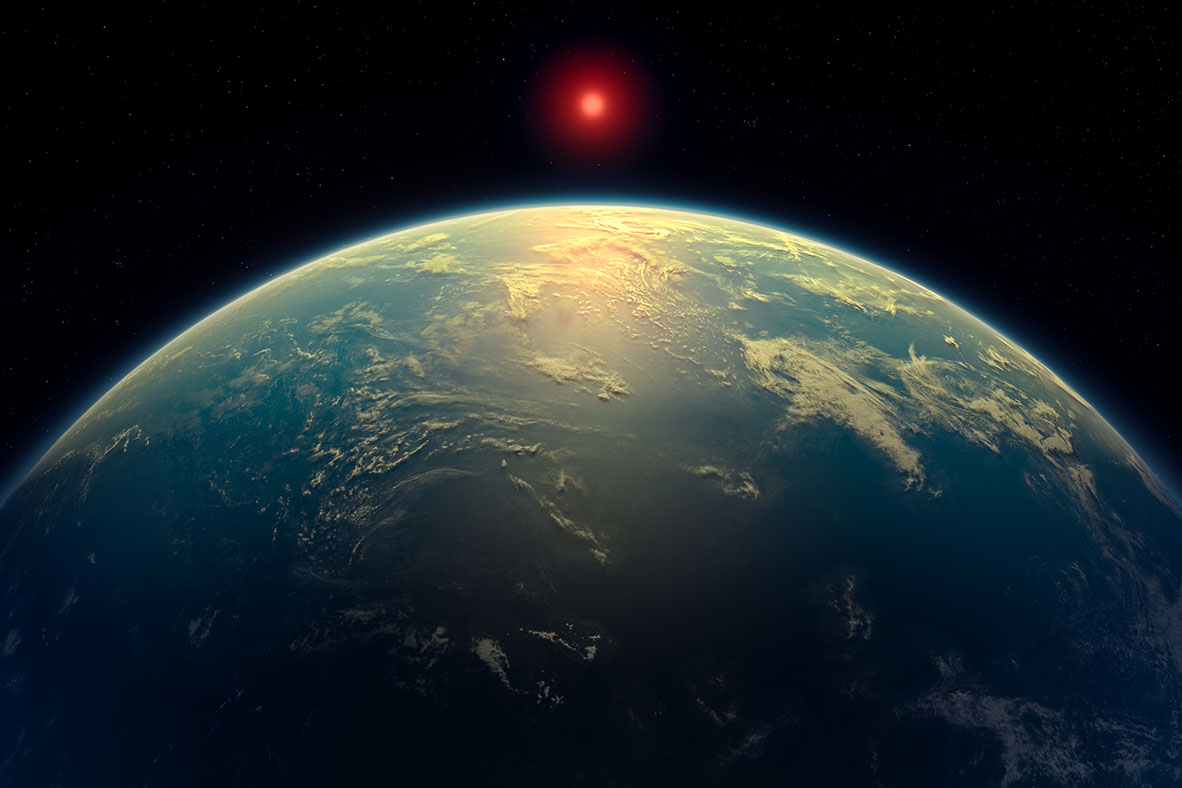
But when it’s found it may not be flying UFOs
In 2019 two French physicists won the Nobel prize for physics for their discovery of an Earth-like planet orbiting around a Sun-like star.
So what? They made their discovery in 1995. It was a big deal then. It isn’t now. Thirty years on there are more than 6,000 known earth-sun systems in the Milky Way alone.
Do any of them support life?
- Professor Dava Newman of the Massachusetts Institute of Technology believes humans will find proof of life beyond Earth by the end of this decade.
- Not incidentally, Donald Trump has said he will declassify documents held by the Pentagon on UFOs.
He hasn’t yet, but the way things are going he will. The chance these documents will lay to rest conspiracy theories about alien spacecraft held by the US government is close to zero. The chance Newman will be vindicated with evidence of alien life – microbial if not intelligent – is altogether bigger.
Even in a jaded world glued to its collective phone, proof of alien life would – surely – cut through.
Star struck. The Milky Way is Earth’s cosmic backyard.
- It’s a galaxy 100,000 light years across in a quiet corner of a cloud of galaxies known as the Laniakea Supercluster.
- It comprises about 100 billion stars.
- For every one of those stars there’s another entire galaxy further away in the observable universe, and in the universe beyond that there are trillions more (galaxies).
- For every grain of sand on Earth there are perhaps 10,000 stars.
- And most of them are orbited by planets.
Life rafts. “There’s a tremendous amount of real estate out there,” says Andrew Siemion of Oxford University and the Search for Extraterrestrial Intelligence (Seti). “Even, you might say… a tremendous amount of habitable real estate.” He defines this as planets with liquid surface water to mediate the biochemistry of life. How many planets meet this criterion can be estimated with the help of
- astronomical spectroscopy, by which instruments like the James Webb Space Telescope can detect CO2, methane and other signs of organic life in the atmospheres of Earth-like planets hundreds of light years away by analysing the peaks and troughs of their infra-red radiation; and
- the original Hubble space telescope, which has expanded our view of the universe by orders of magnitude, so the belief we are alone has shifted from mainstream to minority.
First visitor. “I believe life is out there,” says Karen Meech of the Haleakalā Observatory in Hawaii, who supervised the frantic study of an interstellar object that became known as ʻOumuamua (“messenger from afar, arriving first”) as it passed close to Earth in 2017. She expects the first proven extraterrestrial life to be microbial, but the Harvard astronomer Avi Loeb has famously proposed that ʻOumuamua is “space trash” from a sophisticated alien civilisation.
Not in front of the children. Loeb, Meech says, is guilty of “pure speculation for which he’s making a lot of money and a lot of attention and a lot of fame”. She says he’s “teaching kids the wrong way to do science”.
Common ground. But they agree humans aren’t alone in the universe. Seti’s Andrew Siemion suggests there’s a 40 per cent chance extraterrestrial life, when detected, will be intelligent. His reasoning: microbial life is widespread but uncommunicative. Intelligent life is the reverse.
So where is everybody? The Fermi paradox holds that if the universe is teeming with intelligent life, humans would have heard from it by now.
Really? “It would be arrogant to think that we are the only intelligent beings created since the Big Bang 13.8 billion years ago,” Loeb says. “And in fact, most stars formed billions of years before the Sun. And so what I say is that it’s not an extraordinary claim to say that we have a partner out there.”
What’s more… Most Americans agree. More than half believe footage of alleged UFOs is proof of intelligent extraterrestrial life.
Further listening: Are we alone?














